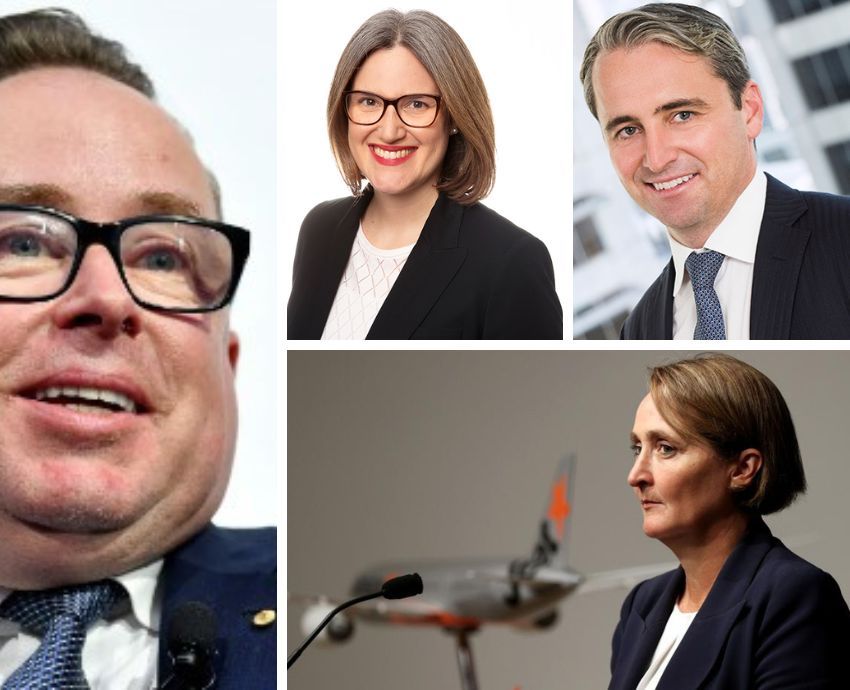
For some, times of crisis can be glorious. The Great Depression bred its share of wealthy profiteers. World War I and II fostered many a multimillionaire. Over the bodies of millions, the returns for armaments companies were unparalleled.
During the current cost-of-living crisis, companies are beaming at their profit margins. While households are counting the dollars and cents for the weekly shop and the fortnightly rental payment, corporate entities of a certain heft are thriving — including the national carrier Qantas and the Commonwealth Bank. Supermarket outlets, such as Coles, have also announced huge return, as has the energy company AGL.
Market defenders take issue with such terms as “price gouging”. “Profit outrage,” The Australian editorial argued, “has always been a fluid concept. It comes around every six months for listed companies, and for their CEOs it’s a balancing act”.
Rather than asking why such companies are thriving as ordinary people are finding it hard to get by, the paper blames customers and workers for not defining “what an acceptable level of profit is”.
Company bosses, such as Coles CEO Leah Weckert, also argue that such profits are miniscule relative to the demands of shareholders. Much like a hospital regarding its patients as irritating fodder, she cites the “wishes” of the market as all conquering and relevant while ignoring the customer.
Banksters are also advancing arguments that their returns are hardly unexceptional. Despite the company’s earnings of $10.16 billion in cash profit, the Commonwealth Bank of Australia’s chief executive Matt Comyn prefers the long view. “Our profitability has fallen substantially in the last decade and is currently lower than a number of international markets.” The company has cut 251 jobs from its IT, business banking and retail banking services roles.
What is unacceptable is the extent these companies seem to derive their profits even as they slash jobs and offer unspeakably poor services, in an effort to consolidate their dominant share of the market.
Talk of competition and the balm of reduced prices have ceased to be relevant in the food, banking, insurance, energy and aviation industries. Behind the profits lie sackings, euphemistic “restructuring”, thinning and the incidental benefits of war.
Reassured in their dominant position companies can behave appallingly. Last year Qantas made losing luggage, cancelling flights and keeping people waiting on calls, matters of routine. Those seeking refunds were often ignored and the frequent flyer redemption system is hopeless.
This is despite Qantas remaining the sole beneficiary of government subsidies to the airline business during the pandemic.
The financial pundits also took note of the tarnished brand, looking beyond the social media storm and understandable fury from the Transport Workers Union. (The latter took the company to court over the sacking of 1700 ground staff during the pandemic.)
The Australian Financial Review revealed “anecdotal evidence that the brand damage is getting worse. It has spread to the elite C-suites of Australian business”.
This year, Qantas has found itself very much in the pink: the company recorded a $2.5 billion pre-tax profit, raising the question as to what the appropriate profit returns in such cases would be.
Controversial outgoing CEO Alan Joyce suggested that such earnings were ordinary, given the last “normal” profit in 2019. His successor, Vanessa Hudson, saw it as a logical outcome of solid planning. “All of the work we have done during COVID in terms of restructuring our cost base, we are going to see that as fares come down … with capacity coming back, that our cost position is going to materially improve going forward.”
The Joyce-Hudson rationale barely survives scrutiny. The company’s higher fares, its structural stripping to the value of $1 billion and its return in invested capital, up from 18.4% in 2019 to 103.6% in 2023, has even prompted the question as to whether there is more than a bit of over-earning taking place.
It’s little wonder that the heads of such outfits have attracted revulsion. But the atrocious and incompetent are long in business and, far from being put down, they survive, striving to fight another day and announce the next round of profits. Shouldering them will be desperate customers and unwilling taxpayers, aiding the whole affair.
Market competition, as it so often tends to be, remains the great hoax of economics.
[Binoy Kampmark lectures at RMIT University.]